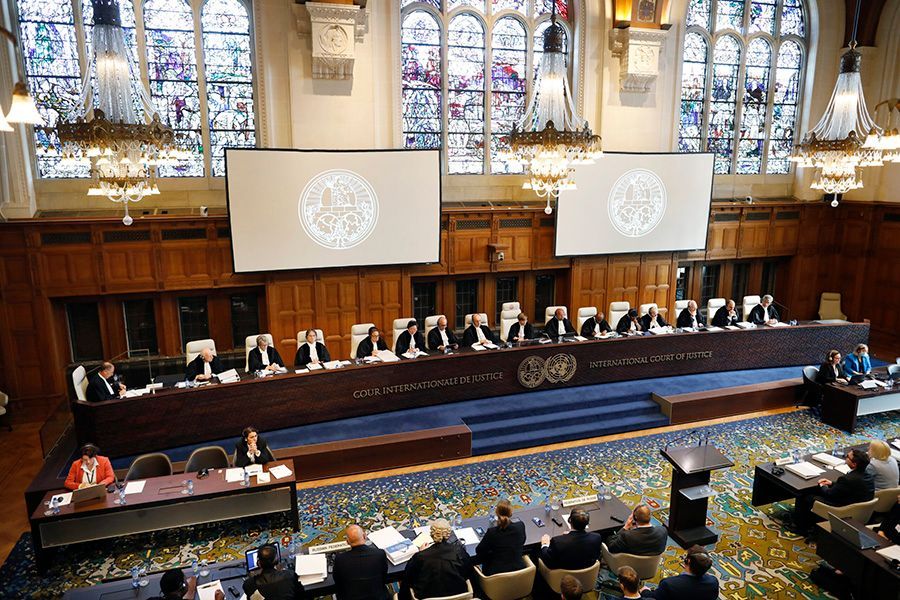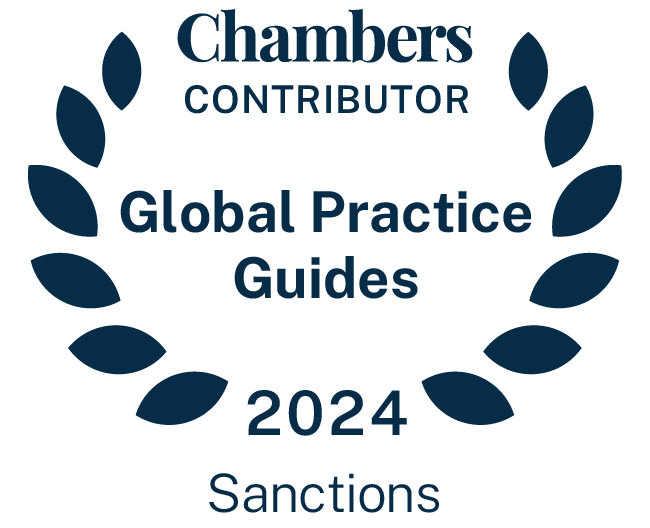ICJ holds first arguments in the case Ukraine v. Russia

Yesterday, the International Court of Justice (ICJ or Court), the principal judicial organ of the United Nations (UN) held the first round of oral arguments in the case Ukraine v. Russia (state responsibility), with the very first statements by Russian representatives in this case, namely statements on the preliminary objections to the Court’s competence in this case.
This dispute is particularly important as (1) it is the first time the Russian representative has taken the stand in the hearings held by the ICJ after Russia’s full-scale invasion of Ukraine, and (2) it touches upon the interpretation, application, and enforcement of the 1948 Convention on the Prevention and Punishment of the Crime of Genocide (the “Genocide Convention”), namely the interpretation of the notion of “genocide” and (3) would constitute “a clear finding from the principal judicial organ of the United Nations that Russia should be held responsible as a state and that it may be ordered to pay reparations”.
The hearings, set to be held until the 27 September, will not delve into the merits of the case and are instead focused on legal arguments about jurisdiction.
Ukraine’s argumentation:
In a lawsuit filed on 26 February 2022 against the Russian Federation with the UN International Court of Justice (“ICJ”), Ukraine demands that Russia be held accountable for distorting the concept of “genocide” relating to the actions that occurred in the Luhansk and Donetsk oblasts of Ukraine:
- It denies that such genocide has occurred insofar as there is no factual basis for the existence of genocide in the Luhansk and Donetsk oblasts, and Russia has advanced no evidence to substantiate its allegation;
- It states that it submitted the Application “to establish that Russia has no lawful basis to take action in and against Ukraine for the purpose of preventing and punishing any purported genocide”;
- It accuses the Russian Federation of “planning acts of genocide in Ukraine” and contends that Russia “is intentionally killing and inflicting serious injury on members of the Ukrainian nationality” – the actus reus of genocide under Article II of the Genocide Convention.
Russia’s argumentation:
Russia claims that the court has no jurisdiction over the case, as Ukraine’s ‘creative argument’ would not be in the convention scope and calls on the judges to dismiss the case, insofar as:
- Ukraine insists no genocide acts occurred;
- the Genocide Convention governs neither the use of force between States nor the recognition of States and applies only if a genocide occurred, so the subject of Ukraine’s claim and request falls outside the Convention insofar as the “pretext” of Ukraine to bring the claim is based on the “allegedly abuse of the Genocide Convention” by Russian Federation.
- According to the longstanding ICJ’s caselaw, if there was no genocide, there cannot be a violation of the Genocide Convention; and
- the ‘military operation’ was not legally based on the Genocide Convention, but on Article 51 of the UN Charter – on exercising the right of self-defence in the event of armed attack – and customary international law.
- It accuses Ukraine of acts of genocide against ethnic Russia the Kyiev regime of “neo-nazi”.
Other procedural matters:
Court’s jurisdiction
The ICJ will establish whether it has jurisdiction or not. This question was already partially and prima facie established during its initial injunction in March 2022 in which hearings Russia did not participate.
The issue lies in the fact that neither Ukraine nor Russia have made a declaration accepting the ICJ’s compulsory jurisdiction under Article 36 of the ICJ’s statute. Therefore, the ICJ’s competence in the Ukraine case derives solely from the Genocide Convention, which both Russia and Ukraine have ratified. It obliges state parties to prevent and punish genocide and gives the Court jurisdiction over disputes between parties relating to ‘interpretation, application or fulfilment’ of the Convention.
The Court’s decision of 16 March 2022 considered that there is sufficient evidence for Ukraine to invoke the compromissory clause in Article IX of the Convention, which attributes jurisdiction to the ICJ for disputes arising under the Convention. Some noteworthy arguments of the Court to support its preliminary decision are as follows: in discharging its duty to prevent genocide, every State may only act within the limits permitted by international law; the Court is not in possession of evidence substantiating the genocide allegations of the Russian Federation; the Court is ‘doubtful’ that the Convention authorizes unilateral use of force in the territory of another State.
State interventions
A total of 32 states joined the case with their interventions. They will also take part in the court hearing. On June 5, 2023, the ICJ passed an Order confirming that the interventions of the 32 states are acceptable.
This is an unprecedented number of participating states in history: 34 of the 193 UN members, that is, almost 20 percent, are taking part in the trial. The big absent is the United States whose request was rejected on a technicality by the ICJ.
What is next?
The hearings will be held in two rounds: Russia’s representatives will speak again on September 25, and Ukraine’s team will have the floor on September 19 and 27.







